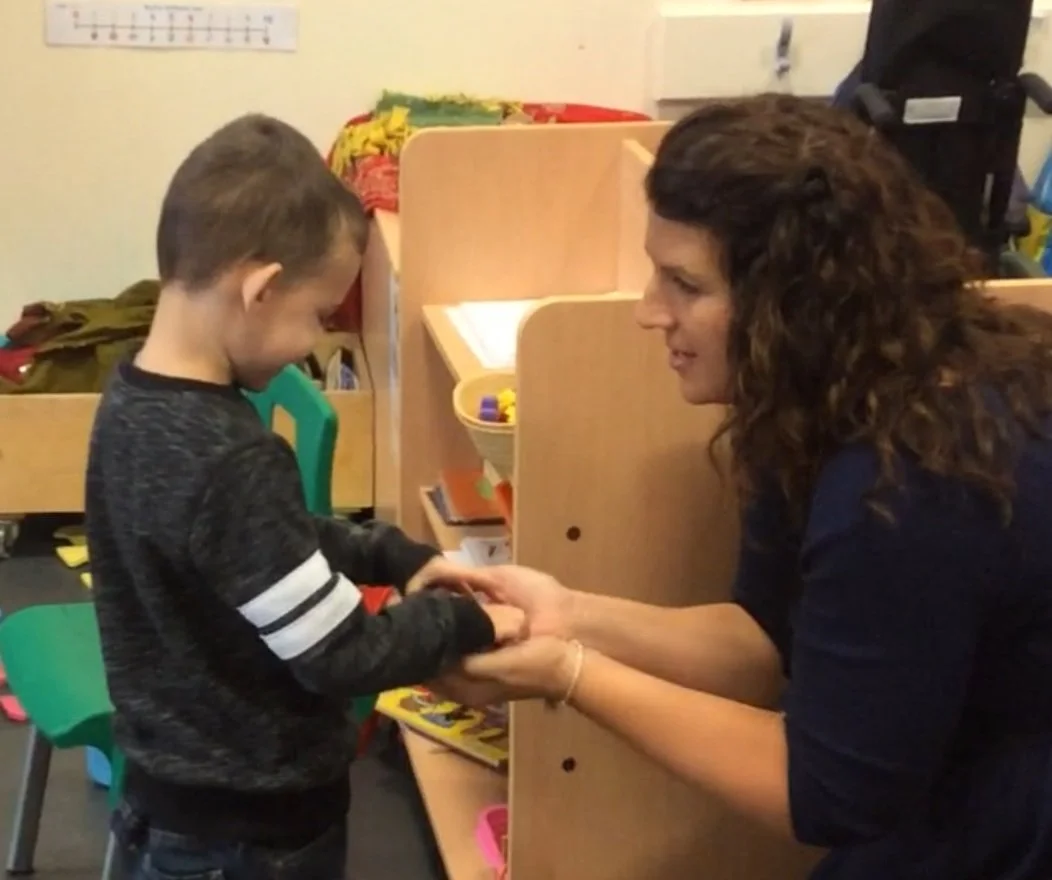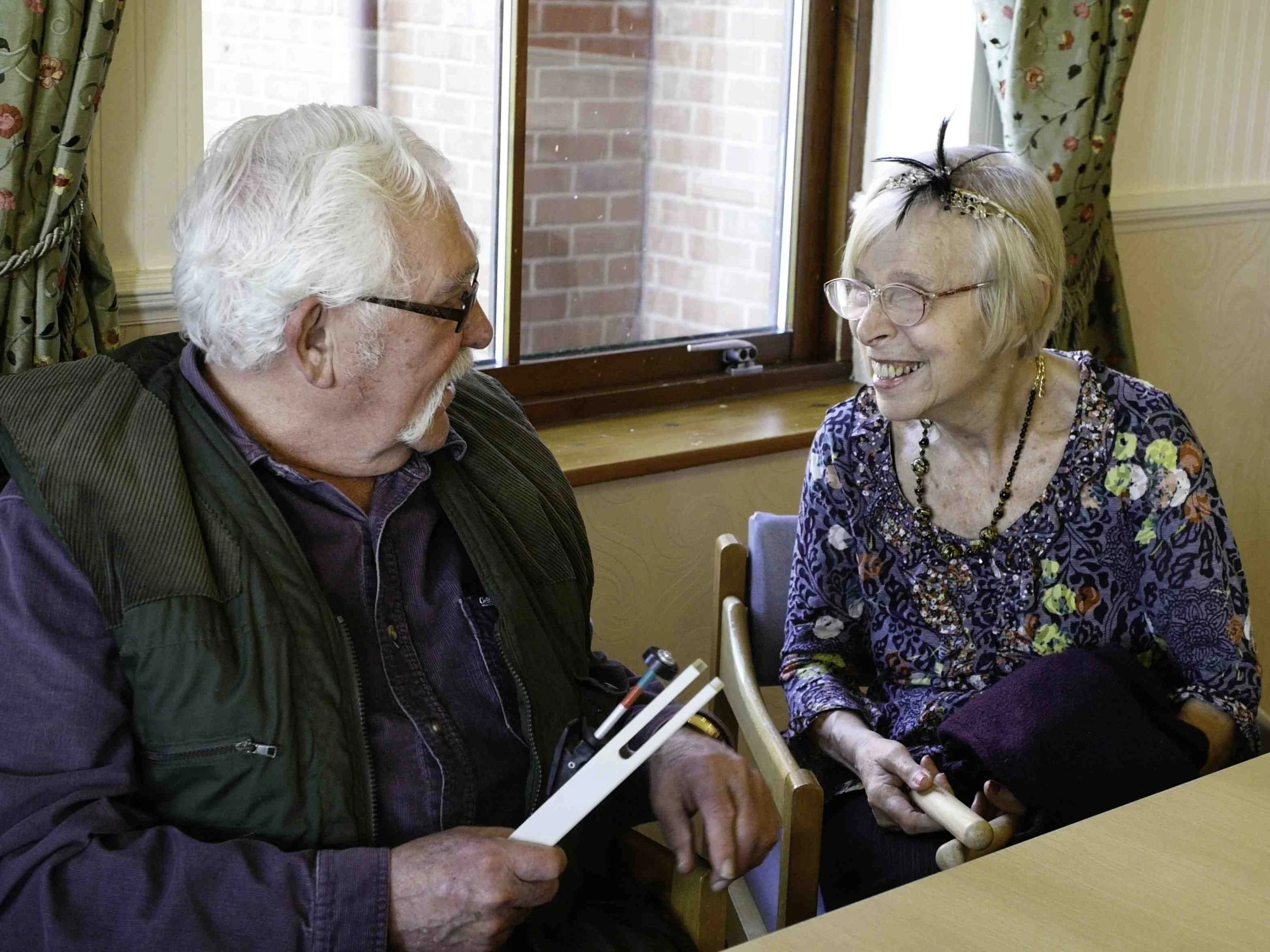One common question from practitioners centres around the observation that children would often turn away or move away when a staff member approached for interaction. One answer to this common situation lies in what we are trying to achieve when we approach.
Two Weeks of Rapport
I recently worked with a school to support a significant rapport-based initiative. Underpinned by the premise that high quality interactions and positive relationships are essential for effective teaching and care, the school agreed to support staff to engage in a rapport-based communication focus time for two full weeks.
During this time, staff were given permission to do less of their usual teaching and syllabus related obligations, giving more time to engage in sensitive, patient, playful child-led interactions. The aims of this project were:
1. For every child to have a bond with every member of staff in the class
2. For each member of staff to feel that they have better relationships with the children
3. For each member of staff to have a deeper understanding of rapport-based communication and intensive interaction practice eg. 3C’s, 3 ingredients of rapport
4. For class teams to have engaged in more reflective practice around rapport-based communiciation and intensive interaction
The efficacy of the project is currently being evaluated. Watch this space for more info.
Musicality Unhindered: Part 1
I believe that all people, without exception, are able to make music. Confidence in music making does not come down to musical ‘ability’ or whether one is ‘tone deaf’. A person is able to be musical if their innate musicality is able to flow, unhindered by the many obstacles that can make music-making more difficult.
Music-making with others is much like conversation. A satisfying experience is dependant upon listening skills, patience, care, empathy, sensitivity and leaving space for others. For positive and meaningful dialogue, these skills are more important than having an extensive and diverse vocabulary. A person can know a lot of words yet be a poor communicator.
Given that we all have, to one degree or another, learnt these communication skills, we all have the potential to make music in a way that feels satisfying and enjoyable, if only we were given the opportunity to make music in a way that prioritised these skills, rather than in a manner that depended upon us first overcoming various physical and intellectual barriers and obstacles.
It is not only in the music-making domain that these obstacles to creativity exist. I have seen in some schools that young people are led to believe that writing skills are required in order to make up stories, and that the fine motor skills, co-ordination and conceptual understanding of spelling syntax and grammar can then become physical and intellectual obstacles to story making. Young people (and older folk) can, of course, imagine stories without the need to write any of it down, as is evidenced by the fact that the most well known traditional storytellers have been illiterate (eg Duncan Williamson the famous Scottish traveller).
The barriers to music-making that are inherent to an activity offered by a facilitator can be:
Physical - requires a level of dexterity that is beyond the capacity of the participant
Competency - requires a level of understanding that is beyond the capacity of the participant
Musical - the music inherent to the activity does not motivate the participant
Facilitation - the way the activity is offered is not dynamic enough to respond to the participant
The next part of this series will explore the Physical obstacles to music making.
Rapport is for everyone
Rapport-based communication is most needed when supporting people who are at risk of social isolation. While complex needs and PMLD are a common cause for social exclusion, all people in autism, learning disability and dementia care and education, including the staff, will benefit from stronger, more trusting relationships.
Rapport-based communication is all about establishing mutually shared activities (common thirds) that both people enjoy and feel instrinsically motivated to participate in. The most common feature of a rapport-based communication is that the practitioner will join in with the actions and gestures of the person they are supporting. But Rapport-based communication only looks like this when the supported person is at an early stage of communication development.
For people who are at later developmental stages, the offer may be an activity rather than a body movement or gesture. To copy the offer would then be to join in with the activity (common third) as a way to share space with the person. For example, a person may like football, or going to the cinema or painting. To engage in a rapport-based communication means to celebrate the interests of the person (offers) and join in, in a way that places no demands upon the person and lets them lead.
This is why we come to work!
Developing a 'Leader Group' to embed rapport-based practice
Updated Training Manual and Session Record
Which is more important: same level, proximity or how you join in?
The initial aim for any rapport-based interaction is to share space with the supported person. With this in mind, a hierarchy of how we offer ourselves to the person emerges.
Creating conducive conditions for rapport involves being at the right distance to the person, joining in with what the person is doing, being at the same levels and adopting the same or similar affect.
New Record Sheet for Rapport-Based Communication
Rhythmic Relating and Rapport-Based Communication
Understanding Training (Part 2): Social Learning Theory
The theory of social learning and communities of practice originated with Etienne Wenger and Jean Lave in the 1980’s and has continued to be developed by Etienne and Bev Wenger Trayner. The original theory of communities of practice proposed a model of how groups of people engage socially to develop practice that relates to a shared challenge, problem or interest. This theory has evolved into a comprehensive understanding of ‘social learning’, a community of practice being seen as a kind of social learning space.
Understanding Training (Part 1): 70/20/10
24/25 INSETs
INSET season is upon us and this week I have visited:
Danecourt Special School in Gillingham, Kent to lead an Intensive Interaction and Rapport Based Communication day.
Heolgerrig Community Primary School to lead a day on Intensive Interaction, Rapport and Play for staff from LRB units for Methyr Tydfil County Borough Council.
Greenfield Special School in Methyr Tydfil to lead a day on Intensive Interaction, Rapport-based communication and understanding behaviour as communication.
Rapport and Relationships: The Basis of Childcare (part 3)
Rapport and Relationships: The Basis of Childcare (part 2)
Supporting Autonomy
Self-determination theory suggest that wellbeing is dependent upon the fulfilment of three fundamental psychological needs - autonomy, competence and relatedness. An autonomy supportive interaction style such as rapport-based communication is an essential part of high quality care and assessing the quality of such provision is possible through the use of The Autonomy Support Questionnaire (ASQ).
Rapport and Relationships: The Basis of Child Care (Part 1)
The importance of building relationships in dementia care
Intensive Interaction & Rapport (Part 1) - Behavioural Mirroring
Rapport and Wellbeing
According to self-determination theory (SDT), the fulfilment of three basic needs (autonomy, competence and relatedness) is highly influenced by the social environment. Close relationships and rapport in particular have a deep impact upon whether a person’s needs are satisfied and wellbeing is experienced (Baker et al 2020: 2, Ryan and Deci, 2002: 6).

















